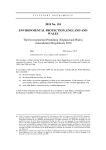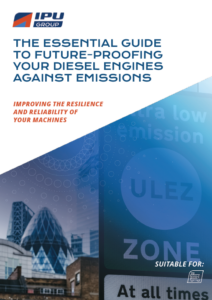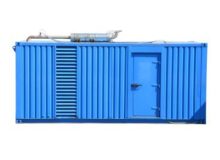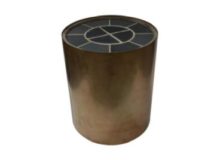Emissions Solutions
Legislation is cracking down on emissions from diesel gensets. The primary motivation for organisations to implement diesel emission controls is fundamental: because they have to.
With the nationwide implementation of Clean Air Zones, non-road mobile machinery regulations and the new Medium Combustion Plant Directive (MCPD), it is essential that engines are compliant. IPU has emissions solutions to suit your application.
Want to see IPU’s emissions solutions in action? Register your interest for our next demo day here.
- Clean Air Zones are being implemented into major cities to reduce the NOx levels
- SCR Systems are extremely effective at reducing NOx from a diesel genset
- STOR sites such as this one may have to comply with recent legislation
On-site power generation is dominated by diesel engines. They power the bulk of the world’s emergency generators, rental generators and energy market balancing reserves.
Their popularity is underpinned by unbeatable economy and reliability. If this popularity is to continue they need to address their greatest weakness: emissions.
Like any engine powered by fossil fuel, diesel engines generate exhaust emissions that damage the environment. To safeguard their future, these emissions need to be brought down to a level that is comparable to less harmful fossil fuels such as natural gas.
- Our Emissions Solutions system has recently been awarded the Innovation and Technology Award 2018 from AMPS
- What are the main legislations that I should be aware of?
Medium Combustion Plant Directive (MCPD)
The MCPD is EU legislation that became UK law in December 2017. The MCP Directive (Directive (EU) 2015/2193) covers diesel engines between 1 and 50 MWth capacity (described as medium-sized engines).
These diesel engines represent an important source of emissions of nitrogen oxides (NOx) and dust (particulate matter). The MCP Directive regulates their emissions of them with the sole aim of reducing these harmful substances that are known to be hazardous to human health as well as the environment.
The MCPD has been brought into force across the UK through 3 different regulations:
- Non-road mobile machinery
The NRMM is EU regulation to control emissions from engines not used on public roadways, including off-road vehicles such as construction and railway vehicles. Mobile generator sets are also included. Engines <19 kW and >560 kW fall under the non-road mobile machinery regulation.
Particular focus is being placed on the following emission types under the NRMM regulations: NOx, PM, Carbon Monoxide and Hydrocarbons (unburnt fuel).
Non-road mobile machinery will be unable to operate in London’s Ultra-Low emissions zone and other cities operating a clean air zone without being compliant to emissions regulations. Existing NRMM must now be retrofitted with emissions abatement technologies.
- What are the main legislation that I should be aware of?
Clean Air Zones
A Clean Air Zone is an area where a specific action is being taken to improve air quality. Clean Air Zones aim to address sources of pollution, including nitrogen dioxide and particulate matter, with the hope of reducing public exposure to them.
London already has a Low Emission Zone in place, with plans to introduce an Ultra-Low Emissions Zone from April 2019. There are another 5 cities that are required to introduce a Clean Air Zone by 2020.
- What emissions solutions do I have available to comply?
IPU has numerous diesel emission controls to suit different gensets, applications and emissions problems. These include:
- Selective Catalytic Reduction
- Diesel Particulate Filters
- Diesel Oxidation Catalysts









